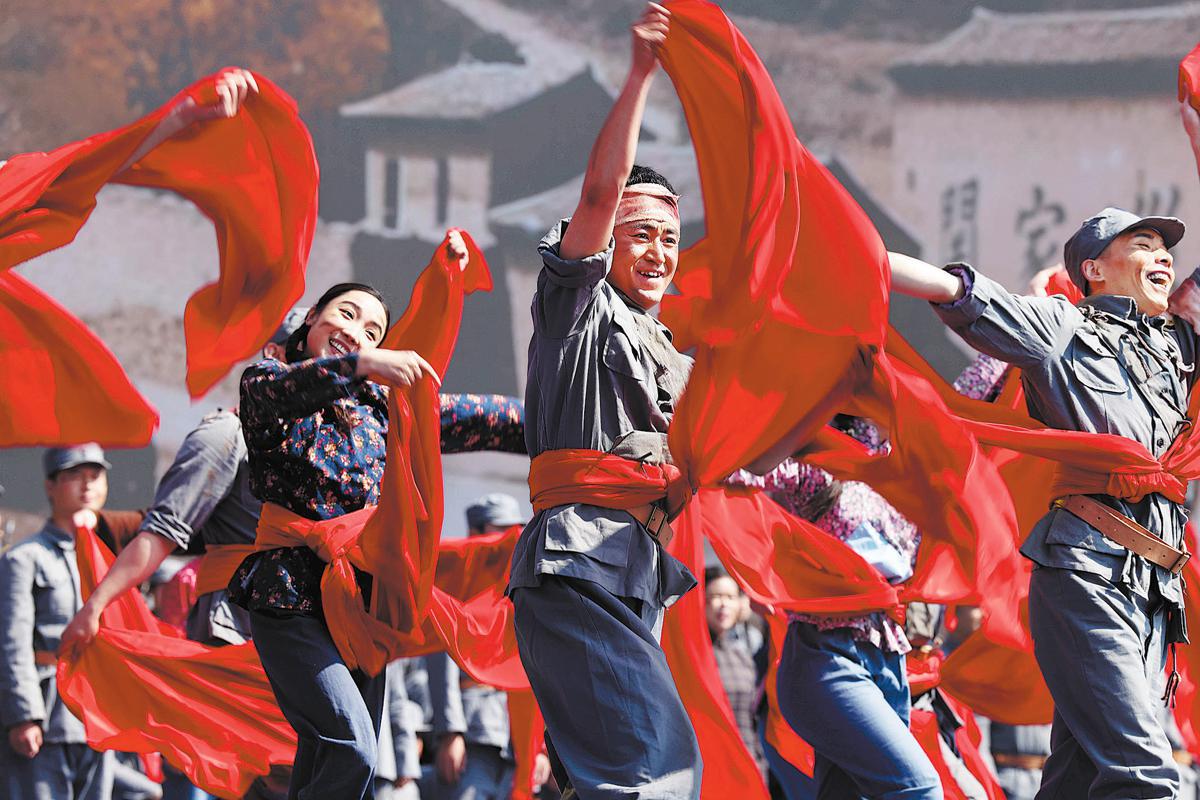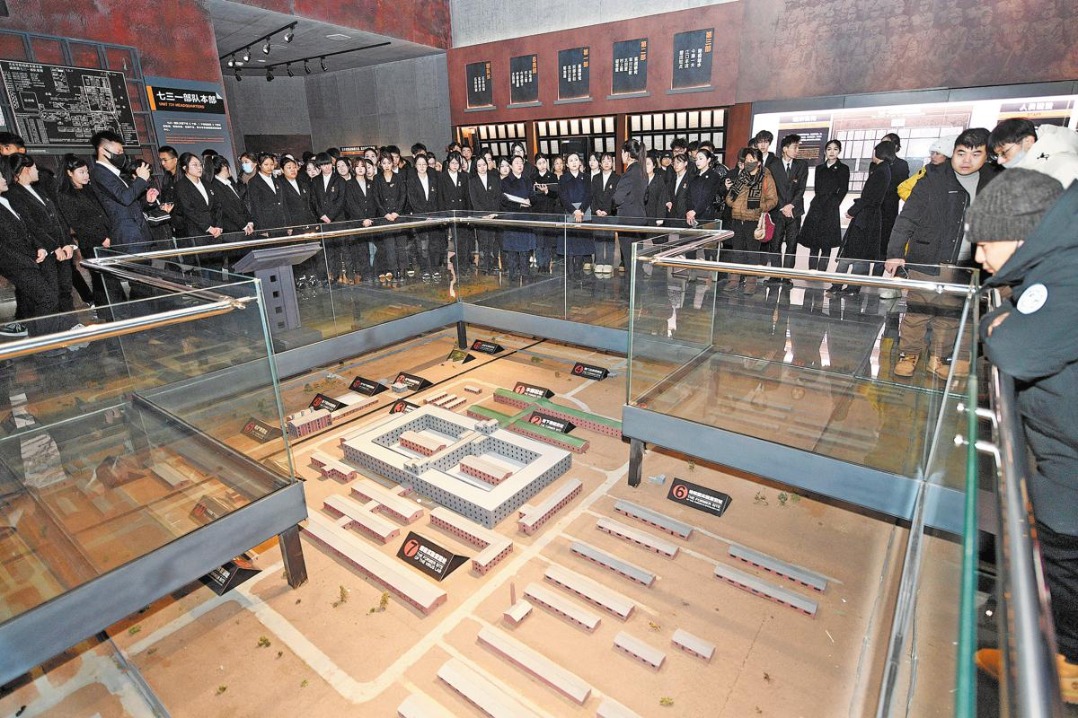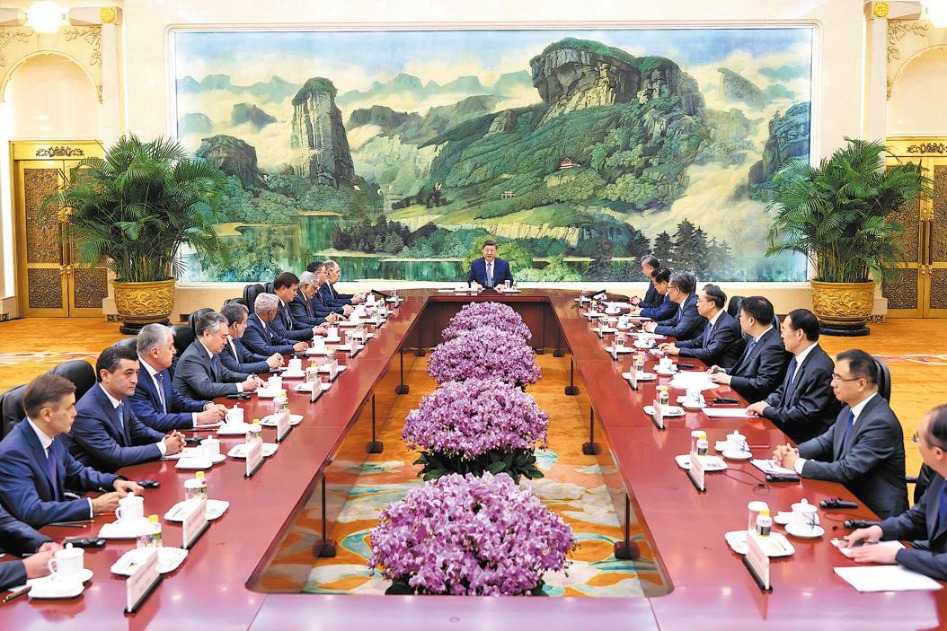Wuxiang festival retraces heroic tales of resistance
Young people inspired by 'Taihang spirit' of sacrifice and selfless dedication


Guan Lixia, 24, had grown up listening to her grandfather's stories about the fight against Japanese invaders during the Chinese People's War of Resistance Against Japanese Aggression (1931-45). The grandfather would recount tales of how he and the residents of Zhuanbi village in Wuxiang county, Shanxi province, cleverly used the local tunnel system and guerrilla tactics to help the Eighth Route Army repel the Japanese aggressors.
Wuxiang, located in northern China, served as the headquarters of the Eighth Route Army and a revolutionary base in the Taihang Mountains. As a native of Wuxiang, Guan said, "The stories of the resistance have subtly influenced my life, instilling in me a sense of responsibility. Whenever I see remnants of the war, I feel a deep respect in my heart."
During the period of the war, in the small county of Wuxiang with a population of 140,000, over 90,000 people joined various anti-Japanese organizations, more than 14,600 people enlisted in the Eighth Route Army, and over 20,000 sacrificed their lives.
"What sets Wuxiang apart from other revolutionary bases is its spirit of selfless dedication," Guan said.























